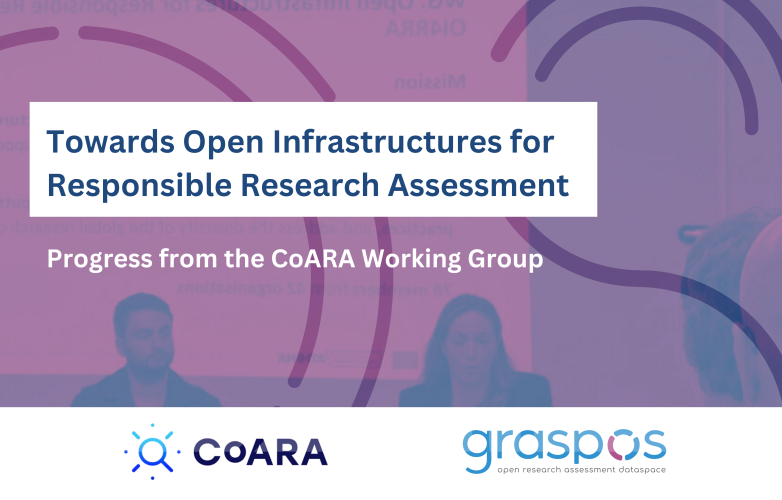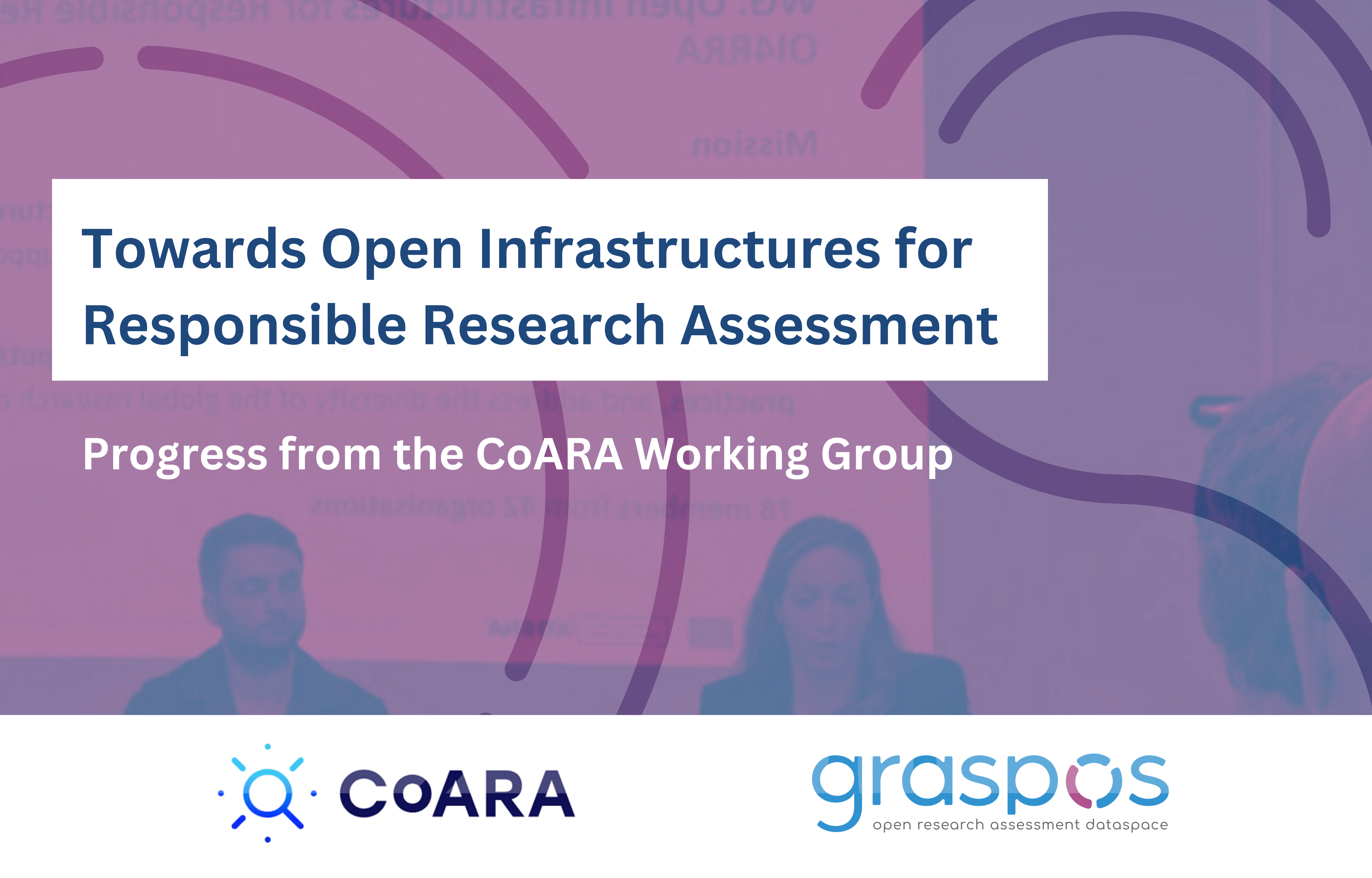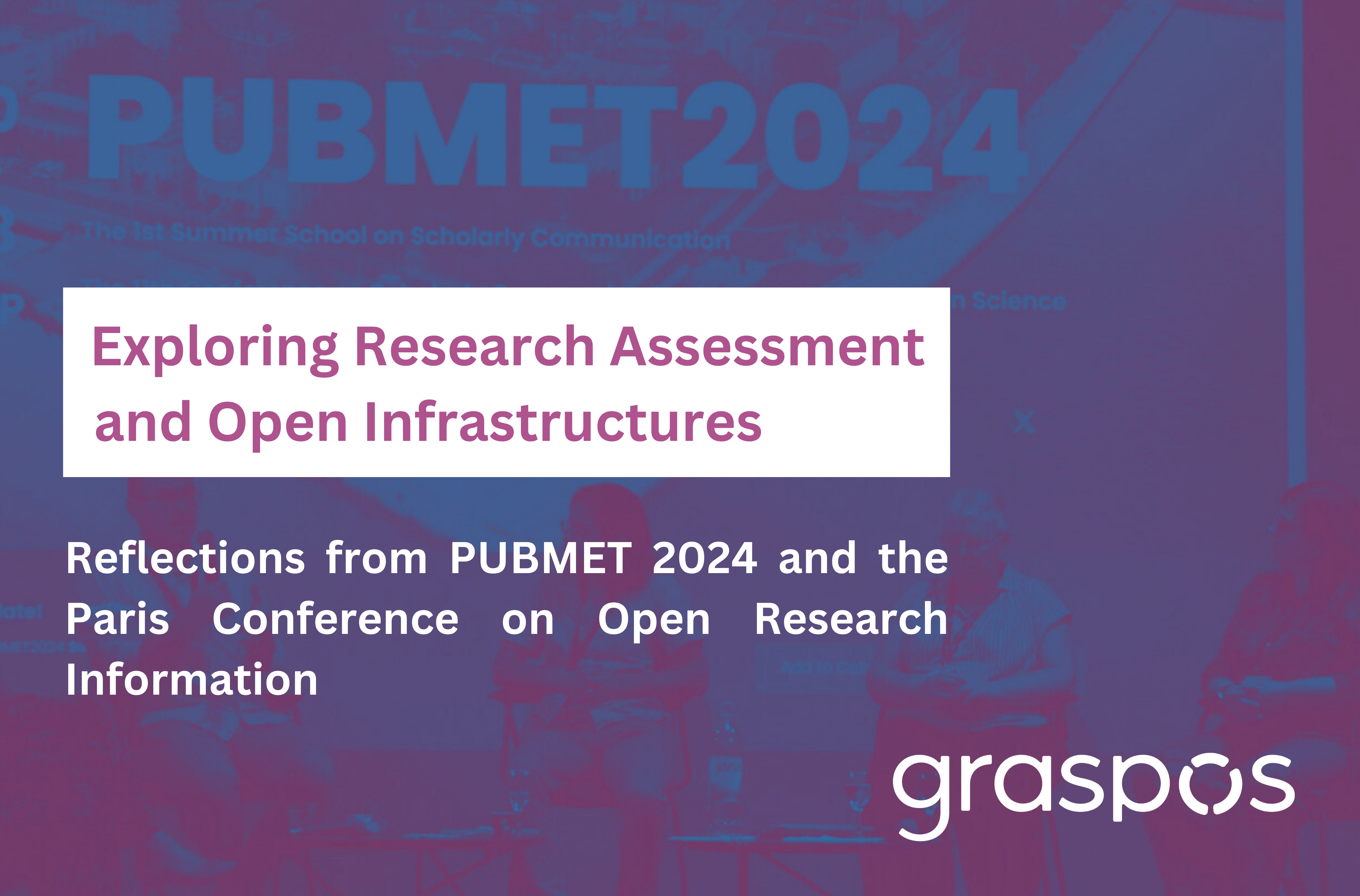Advancing Open Infrastructures for Responsible Research Assessment: Progress from the CoARA Working Group OI4RRA

In the context of CoARA, the Working Group (WG) on Open Infrastructures for Responsible Research Assessment (OI4RRA) is at the forefront of transforming research assessment by promoting the shift from closed, proprietary infrastructures to open, interoperable infrastructures fit for Responsible Research Assessment (RRA).
This change is vital to fostering transparency, inclusivity, ethics and community governance in research assessment, ensuring that research outputs reflect the diversity of disciplines, geographies, and output types. OI4RRA’s mission emphasises the development of infrastructures that are accessible, sustainable and accountable to the research community, ensuring that diverse scholarly outputs from all disciplines and regions are appropriately recognised. At the heart of this transformation is the integration of RRA principles enhancing trust, transparency, and equity.
Key Focus Areas: Principles and Frameworks
The OI4RRA WG has concentrated its efforts so far on two major areas that are vital for guiding institutions in adopting Open Infrastructures fit RRA:
1. Principles and Terminology for Open Infrastructures fit for RRA
The OI4RRA WG has developed a comprehensive set of principles that provide a framework for advancing open, sustainable, and ethically governed infrastructures. These principles are in the final stages of development and will soon be available to support institutions as they transition to open systems. They focus on: Community Governance; Transparency and Openness; Sustainability; Equity; Ethical; Standards and Responsibility; Innovation and Adaptability.
These principles provide institutions with a robust ethical framework to ensure their research assessment systems are transparent, equitable, and community-centred.
2. Architectural Reference Model for Open Infrastructures & User Personas
In addition to the principles, OI4RRA has developed an architectural reference model which provides a structured approach for implementing open infrastructures, starting with establishing essential metadata, Persistent Identifiers (PIDs), and standardised protocols (Tier 0). Institutions are then guided to make research outputs publicly available through open access venues like journals and repositories (Tier 1), followed by the integration of scholarly metadata aggregators to compile and curate data (Tier 2). Finally, research assessment services leverage this aggregated data to generate responsible metrics, indicators, and analytics (Tier 3), ensuring comprehensive and ethical research evaluation.
The OI4RRA WG has created user personas to clearly convey how the various components of open infrastructures can be applied to evaluate research impact, openness, and reproducibility. These personas offer clear, practical examples, showing how researchers, institutions, and assessment bodies can utilise these infrastructures effectively in real-world situations.
|
||
|
The OI4RRA WG is currently conducting interviews with institutions that have transitioned to, or are in the process of adopting, open infrastructures. These interviews aim to gather best practices, challenges, and insights to inform future guidelines and tools. In addition, OI4RRA is collecting case studies from institutions that have successfully implemented open infrastructures for research assessment. These contributions are crucial to refine the WG’s outputs, ensuring they are both practical and reflective of diverse institutional needs. Institutions interested in sharing their experiences are invited to contact Angeliki Tzouganatou ( |
Aligning with the Barcelona Declaration
At the Paris Conference on Open Research Information in September 2023, CoARA’s OI4RRA WG was represented by Angeliki Tzouganatou and Thanasis Vergoulis. Their presentation “Harmonizing the Barcelona Declaration and CoARA Efforts: Advancing Open Infrastructures for Responsible Research Assessment” showcased how OI4RRA is advancing open infrastructures in alignment with the Barcelona Declaration on Open Research Information. This Declaration advocates for open, transparent, and accessible research practices—values that are central to OI4RRA’s objectives. Through its development of open, community-driven infrastructure models, OI4RRA is providing institutions with practical frameworks for transitioning away from proprietary closed commercial platforms, ensuring that research assessment systems reflect ethical and transparent practices.
Looking Forward: Building a More Open and Equitable Research Ecosystem
As the OI4RRA WG continues to develop open, community-driven infrastructures fit for RRA, its forthcoming outputs will serve as essential resources for institutions looking to enhance the transparency, fairness, and sustainability of their research assessment infrastructures and practices. The finalisation of the principles for open infrastructures will provide institutions with a foundational framework to guide their transitions toward open, ethical research assessment.
This article was written by Angeliki Tzouganatou (OpenAIRE)



